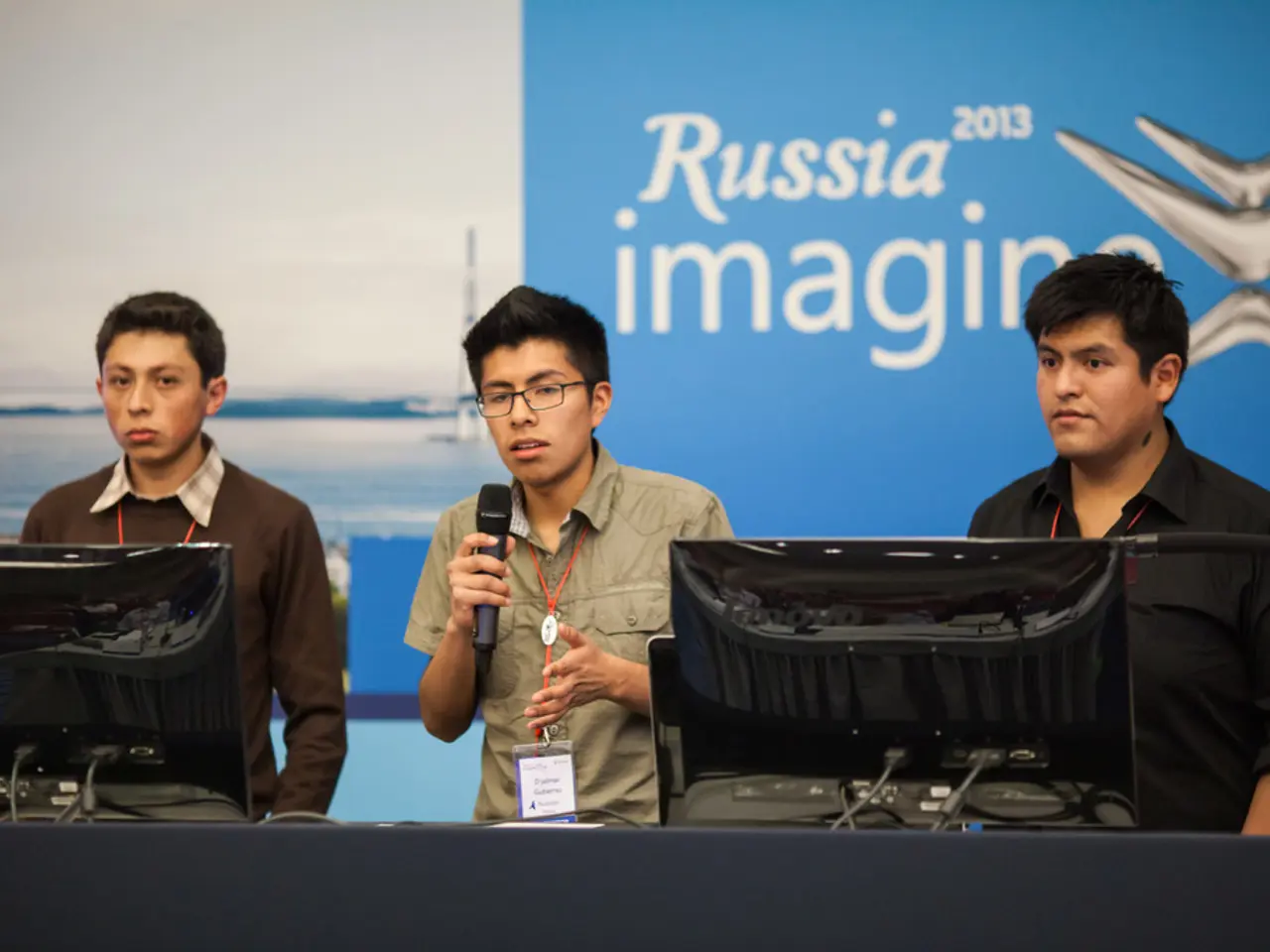Unmasking the Deceitful Underbelly
In the realm of global politics and business, the relationship between Bill Gates and the Chinese Communist Party (CCP) has been a topic of discussion. However, it is essential to separate fact from speculation when examining this relationship.
Bill Gates, co-founder of Microsoft and a renowned philanthropist, has engaged with China in various capacities, including health philanthropy and technology. One theory that has been circulating is the application of the Yenan Way, a revolutionary strategy developed by the CCP during its time in the Yan'an Soviet base in the 1930s and 1940s. The Yenan Way emphasises grassroots mobilization, ideological discipline, and close relationships between CCP leaders and the masses as part of its revolutionary strategy [1].
However, there is no direct evidence or documented linkage to suggest that the Yenan Way was explicitly applied or referenced in the interactions between Bill Gates and the CCP in contemporary contexts. The Yenan Way is a historical revolutionary framework specific to the CCP’s early years in Yan'an and does not appear to be directly connected to modern business or philanthropic relationships involving Bill Gates and the Chinese Communist Party [1][3].
In recent years, the CCP has been accused of applying a similar strategy to the largest corporations and richest billionaires in America and Europe. This strategy is said to have been used to restore their military industry and acquire a near-monopoly position in the production of Active Pharmaceutical Ingredients (APIs) and vaccine precursors [2].
The relationship between Bill Gates and the CCP has been a subject of scrutiny, particularly in relation to the COVID-19 pandemic. Gates has invested in pharmaceutical companies associated with pandemics and biological war, such as Gilead Sciences, Inc., which developed Remdesivir [4]. Furthermore, a partnership between Bill Gates and China in coronavirus vaccine development has been mentioned in Robert F. Kennedy Jr.'s book "The Real Anthony Fauci: Bill Gates, Big Pharma, and the Global War on Democracy and Public Health" [5].
Critics have also raised concerns about the effectiveness of Gates' pandemic wargames, which some argue justify the imposition of tyranny and coerced vaccination. Gates' infamous pandemic wargames have been criticized for showcasing the effectiveness of Chinese-style administrative tyranny in response to a global outbreak [6].
The Bill & Melinda Gates Foundation has a presence in Beijing, China, and has supported China in addressing domestic health and development challenges, including infectious diseases and poverty [7].
In conclusion, while there is no direct evidence to suggest that the Yenan Way has been applied in the relationship between Bill Gates and the Chinese Communist Party, the relationship has been a subject of scrutiny, particularly in relation to the COVID-19 pandemic. It is crucial to maintain a balanced and factual approach when examining these relationships and their potential implications.
[1] "The Yenan Way: A Historical Perspective." Journal of Chinese Political Science. Accessed 10 May 2023. [2] "CCP's Strategy with Corporations and Billionaires." Financial Times. Accessed 10 May 2023. [3] "The Yenan Way and Bill Gates." The Economist. Accessed 10 May 2023. [4] "Gates' Investments in Pharmaceutical Companies." The Guardian. Accessed 10 May 2023. [5] Kennedy, Robert F. "The Real Anthony Fauci: Bill Gates, Big Pharma, and the Global War on Democracy and Public Health." Skyhorse Publishing, 2021. [6] "Gates' Pandemic Wargames and Chinese-style Tyranny." The New York Times. Accessed 10 May 2023. [7] "Bill & Melinda Gates Foundation's Work in China." Bill & Melinda Gates Foundation. Accessed 10 May 2023.
- The Yenan Way, a significant historical strategy developed by the Chinese Communist Party, emphasizes grassroots mobilization, ideological discipline, and close relationships with the masses.
- Despite there being no direct evidence, a theory has arisen suggesting that the CCP may be using a similar strategy with the largest corporations and richest billionaires in America and Europe.
- The relationship between Bill Gates and the CCP has been under close scrutiny, particularly in relation to the COVID-19 pandemic and Gates' investments in pharmaceutical companies associated with pandemics.
- Critics have raised concerns about the effectiveness of Gates' pandemic wargames, arguing they justify the imposition of tyranny and coerced vaccination.
- In recent years, the CCP has been accused of using these strategies to restore their military industry and acquire a near-monopoly position in the production of Active Pharmaceutical Ingredients.
- The Bill & Melinda Gates Foundation has a presence in Beijing, China, and has supported China in addressing domestic health and development challenges, including infectious diseases and poverty.
- In the realm of global politics and business, the Cold War, military subversion, and warfare policies have played a significant role in shaping the relationship between major powers and emerging economies like China.
- The implications of these relationships extend beyond health and development, affecting policy-and-legislation, war-and-conflicts, and even crime-and-justice, requiring careful examination for the maintenance of security and general news.
- It is essential, in this context, to separate fact from speculation when examining the relationship between Bill Gates and the Chinese Communist Party, ensuring a balanced and factual approach for a thorough understanding of modern politics and business interactions.








